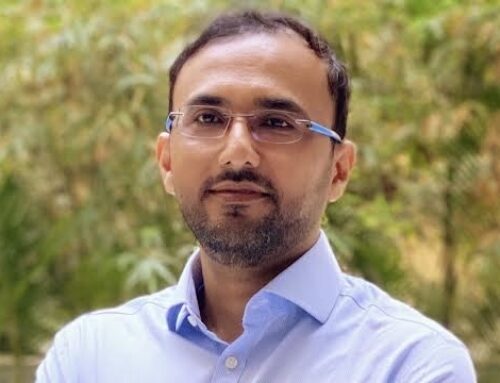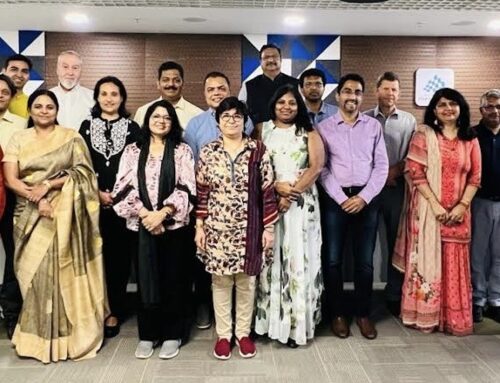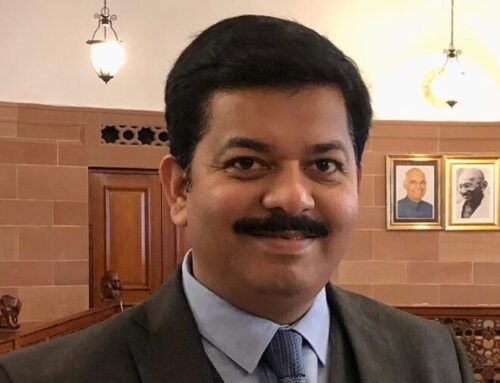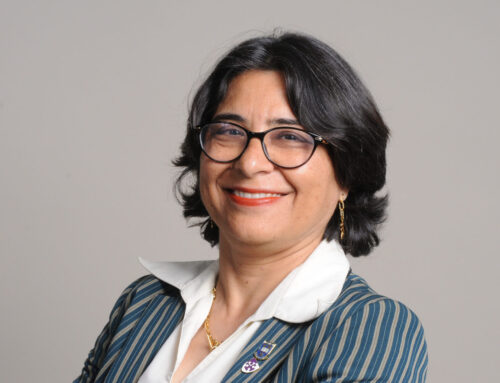John Hoffmire: Since your time as a fellow at the Chevening Research Science and Innovation Leadership Programme (CRISP), you’ve taken on new roles and responsibilities as a leader of brand awareness and customer experience. I’d love to hear more about that?
Meghna: I came to Oxford in 2018 as part of the CRISP program at St. Cross College. I had been working with some of the biggest names in India such as Hindustan Unilever, Amazon, Godrej Consumer Products Limited and Licious – a food-tech space startup. My responsibilities included strategizing for growth, launching new categories, building business verticals, leading pioneering assignments across India and global markets, and transforming consumer behavior in the online space.
The CRISP program helped me realize that I could do more – I could push my learning, my experience, my skills, and my work to new and exciting levels. Over the past year the digital ecosystem adoption has been hugely accelerated.
At this crucial juncture, I am truly excited by the possibilities the future holds to delight Indian consumers. It’s a hugely exciting and challenging opportunity.
John: I imagine customer experience (CX) is quite important in your role as Chief Business Officer. Will you expand on that?
Meghna: CX is described as the sum of all the interactions that a customer has with a brand. Consequently, customer experience as a strategy or part of a wider strategic goal aims to improve all aspects of the customer journey.
It used to be that corporations focused their marketing on brand promises. That focus has shifted significantly in the past two decades and brand promises are no longer enough to attract or maintain customers – you have to consistently give them a good experience with both the product and the service. We are living in a CX-focused era and it boils down to this: as a CX practitioner, I put the customer at the center of everything I do. The consumer is the kingpin of our marketing. Once a customer has a good brand experience not only will they buy more of that brand, they will also share their personal data, demonstrate loyalty, and share their experience with friends and family.
John: How has the pandemic impacted your approach to marketing and customer experience? Can you tell me more about that?
Meghna: The pandemic has transformed ways of living life and doing businesses, globally, for well over a year now. We have all been forced to slow down and adapt to new routines. Even as we slowly return to former ways of life, some changes will be permanent. For a time anyway, as socializing will be more cautious and infrequent, at-home consumption of both goods and services will increase, quality will take precedence over convenience, and luxury will be redefined to imply safer, more private and exclusive. Brands that can foresee these needs and adapt quickly will continue to stay relevant in the consumer’s mind. I think going forward we will see the emergence of a far more critical and aware consumer mindset, that will actively seek superior products and experience. A good marketer will prepare for this inevitability, but a great one will pre-empt it.
John: Last question: is there anything specific about your experience as a CRISP fellow at Oxford that helped prepare you for the work you are doing now?
Meghna: Most definitely yes! First of all, I’m very grateful I was chosen to participate in the program. It is super selective as only 12 mid-level professionals from all over India and Sri Lanka get selected to be a Chevening scholar at the CRISP programme at Oxford. It has an outstanding curriculum that exposes the scholars to innovation, science, strategic management, social enterprise, leadership and life-long learning. The whole program helped me become a better leader at work and be a better mother at home.
One issue in particular that we explored during the programme had a big impact on me – learning more about gender inequality and diversity. While at Oxford, I came across research about gender pay gaps that was shocking to me and motivated me to dive deeper and see what I could do to make a difference with this issue.
One thing I learned through my research is that when there is a job or opportunity listed, in general, a man will apply or ask for the opportunity even if he feels only 60 percent qualified. By way of contrast, a woman will only apply for the opportunity when she is 100 percent sure she is qualified.
Why the difference? It is not lack of humility or arrogance on the men’s part — it’s a lack of confidence in taking risks that women struggle with. These statistics have triggered me to be more sensitive to women applying for and even just participating at work. I now tell men at senior levels that if the women aren’t putting their hand up for an opportunity, keep this statistic at the back of your mind, and see that you give chances to the woman, because they will certainly have the skill set, but maybe not the confidence yet.
I have volunteered as a mentor with the Cherie Blair Foundation for Women, an international mentorship programme for women across the world. It’s an empowering way of sharing stories virtually and guiding women in their respective endeavors and helping them to gain confidence and take risks to compete equally with their men colleagues and increase gender parity in their communities.
John: I have so enjoyed these interviews and learning what the CRISP scholars have been up to since their time in the programme. This interview has been no exception. I wish you continued success and in being a champion for gender equality in the workplace and beyond.
Meghna: Thank you, John, for all you have done for the programme. I will always have such fond memories of Oxford and the CRISP program.
Meghna Apparao is an alum of the Chevening Research Science and Innovation Leadership Fellowship (CRISP) program at Oxford University (2018)
Interviewer: Dr. John Hoffmire is the Chairman of the Center on Business and Poverty, and Research Associate at the Oxford Centre for Mutual and Co-owned Business
Read more interviews here at the Center on Business and Poverty





